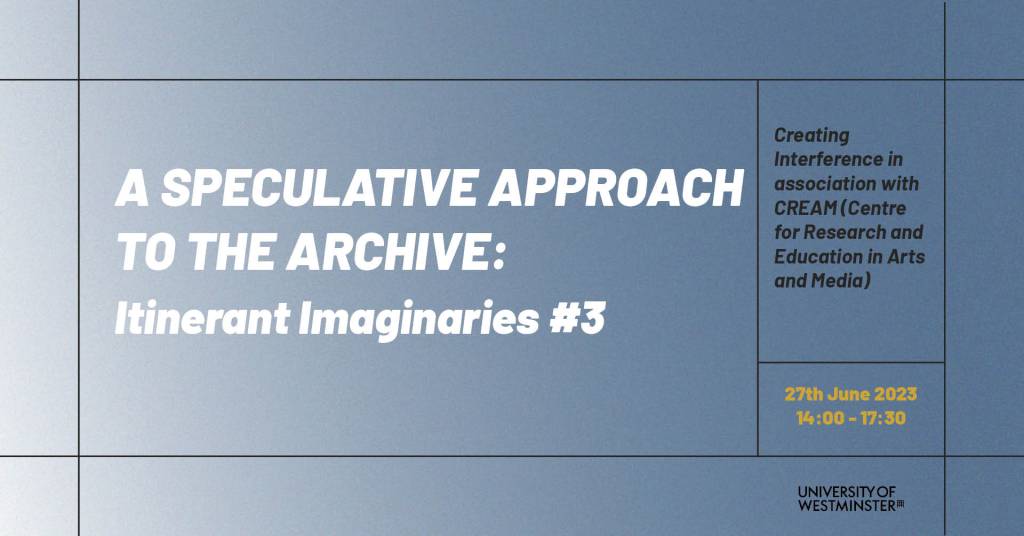
Artists have consistently been at the forefront of challenging the limits of European approaches to collection, acquisition, maintenance and preservation of historical objects. Playing with the turn in archival studies and art practice towards approaches that unsettle and disorientate, on 27th June 2 – 5pm, this long table discussion (online/in person), uses the speculative mode (the future tense) to explore four key themes. We explore the utility of speculation as a method to play with realms of the probable, plausible and the possible in order to rearrange them.
- If we think against the weight of History and the temporality of sequential “events” that constitute it, how else would we engage with Narrative, Institutions, Historical Objects and Monuments under liberated material conditions?
- What happens if we think together beyond the limitations of indexing, taxonomy and classification that haunt archival practice?
- How would material appear, be understood and engaged with if culture were not held hostage by current collection practices, distinctions and audiences?
This opportunity invites you as artists, critics and researchers to participate in a lively discussion bringing your expertise and interest as new thinking to the relationship between art and historical narratives. We will be helped by Françoise Vergès, Ego Ahaiwe Sowinski, Kaitlene Koranteng and Belinda Kazeem-Kamiński who will provide interventions that explore what these themes might mean for future cultural workers and artists.
Tickets available via eventbrite
Roshini Kempadoo and Lola Olufemi, Creating Interference/Itinerant Imaginaries.
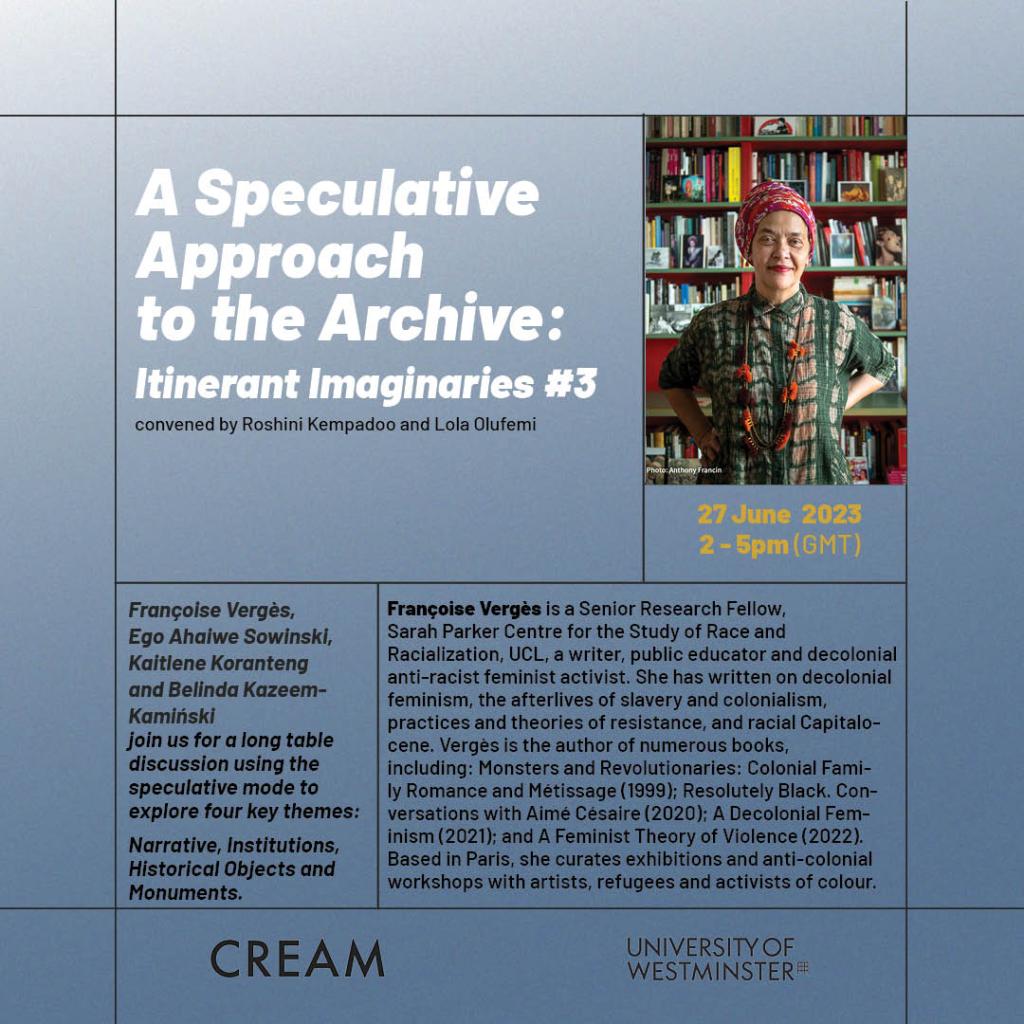
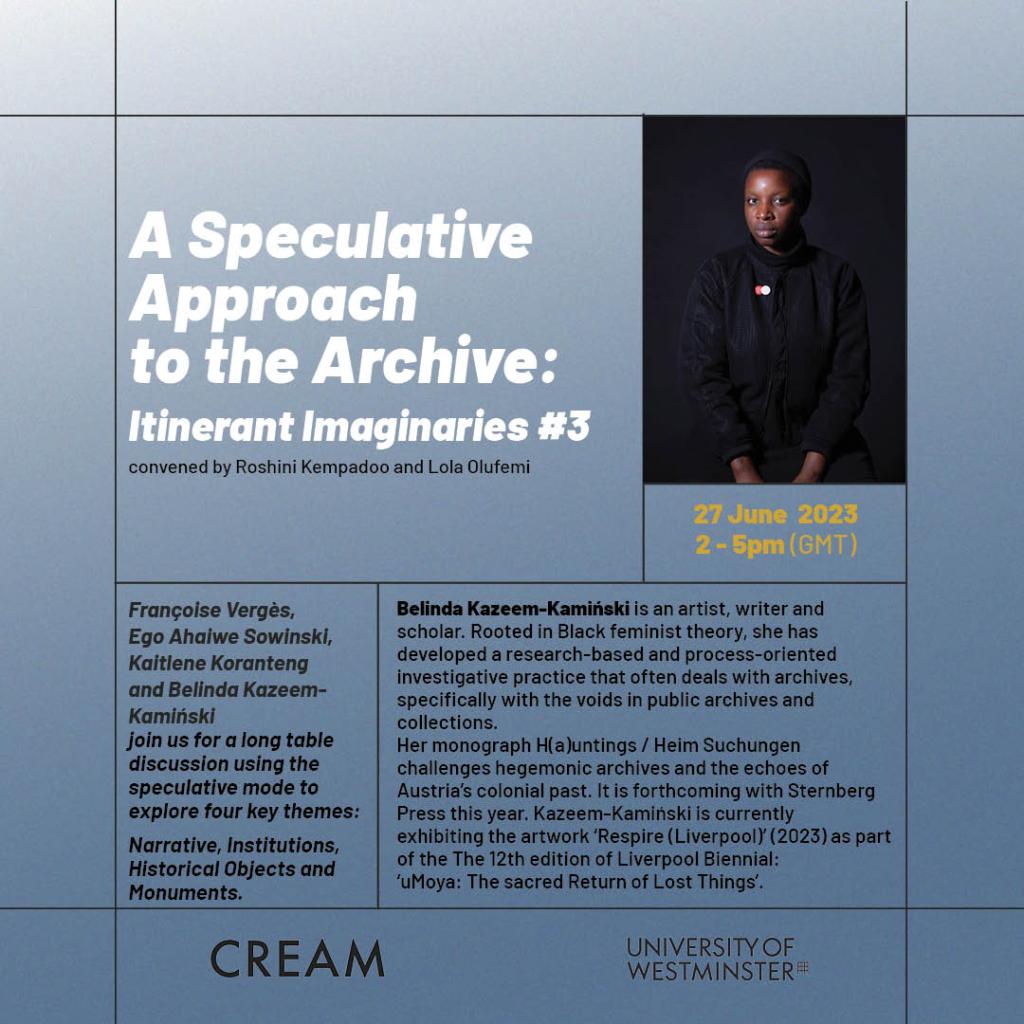
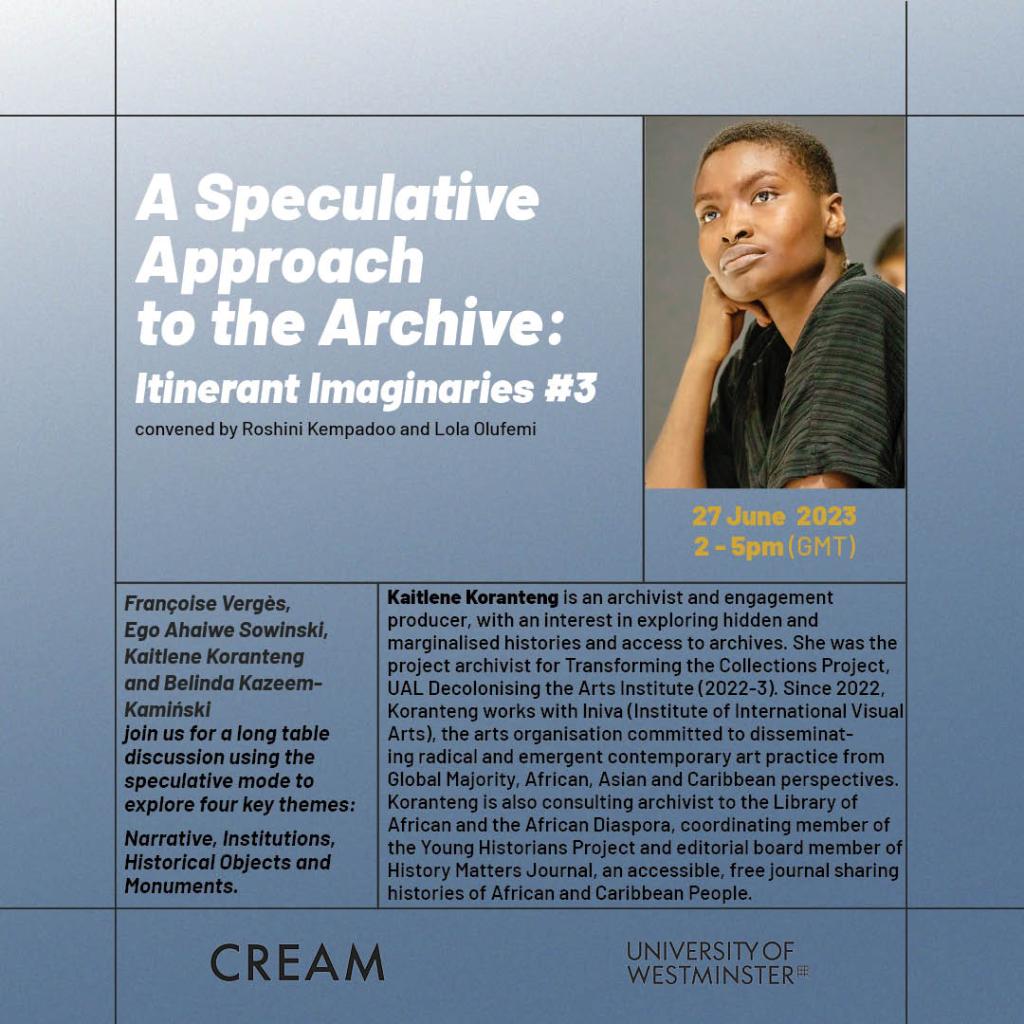
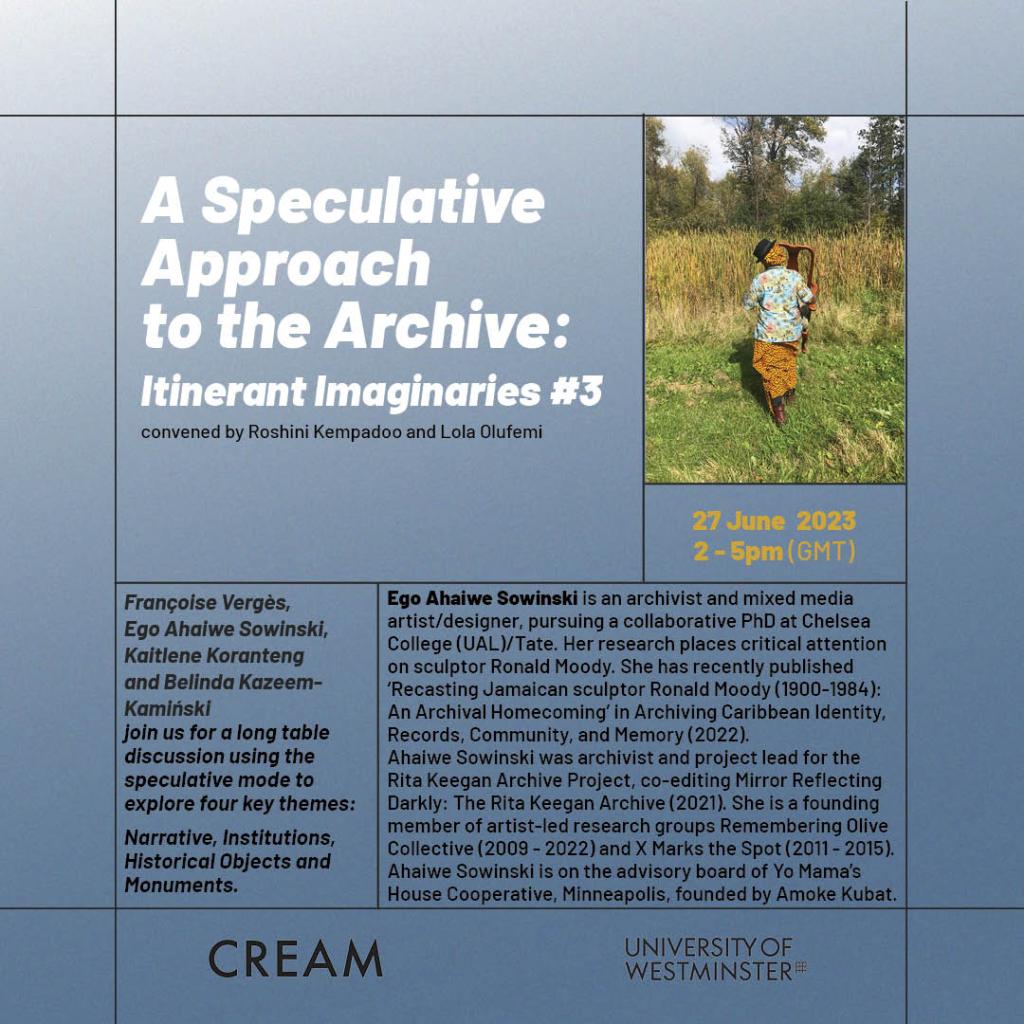
| Françoise Vergès is a Senior Research Fellow, Sarah Parker Centre for the Study of Race and Racialization, UCL, a writer, public educator and decolonial anti-racist feminist activist. She has written on decolonial feminism, the afterlives of slavery and colonialism, practices and theories of resistance and racial Capitalocene. Vergès is the author of numerous books,including: Monsters and Revolutionaries: Colonial Family Romance and Métissage (1999); Resolutely Black. Conversations with Aimé Césaire (2020); A Decolonial Feminism (2021); and A Feminist Theory of Violence (2022). Based in Paris, she curates exhibitions and anti-colonial workshops with artists, refugees and activists of colour. Belinda Kazeem-Kamiński is an artist, writer and scholar. Rooted in Black feminist theory, she has developed a research-based and process-oriented investigative practice that often deals with archives, specifically with the voids in public archives and collections. Her monograph H(a)untings / Heim Suchungen challenges hegemonic archives and the echoes of Austria’s colonial past. It is forthcoming with Sternberg Press this year. Kazeem-Kamiński is currently exhibiting the artwork ‘Respire (Liverpool)’ (2023) as part of the The 12th edition of Liverpool Biennial: ‘uMoya: The sacred Return of Lost Things.’ Kaitlene Koranteng is an archivist and engagement producer, with an interest in exploring hidden and marginalised histories and access to archives. She was the project archivist for Transforming the Collections Project, UAL Decolonising the Arts Institute (2022-3). Since 2022, Koranteng works with Iniva (Institute of International Visual Arts), the arts organisation committed to disseminating radical and emergent contemporary art practice from Global Majority, African, Asian and Caribbean perspectives. Koranteng is also consulting archivist to the Library of African and the African Diaspora, coordinating member of the Young Historians Project and editorial board member of History Matters Journal, an accessible, free journal sharing histories of African and Caribbean People. Ego Ahaiwe Sowinski is an archivist and mixed media artist/designer, pursuing a collaborative PhD at Chelsea College (UAL)/Tate. Her research places critical attention on sculptor Ronald Moody. She has recently published ‘Recasting Jamaican sculptor Ronald Moody (1900-1984): An Archival Homecoming’ in Archiving Caribbean Identity, Records, Community, and Memory (2022). Ahaiwe Sowinski was archivist and project lead for the Rita Keegan Archive Project, co-editing Mirror Reflecting Darkly: The Rita Keegan Archive (2021). She is a founding member of artist-led research groups Remembering Olive Collective (2009 – 2022) and X Marks the Spot (2011 – 2015). Ahaiwe Sowinski is on the advisory board of Yo Mama’s House Cooperative, Minneapolis,founded by Amoke Kubat. |